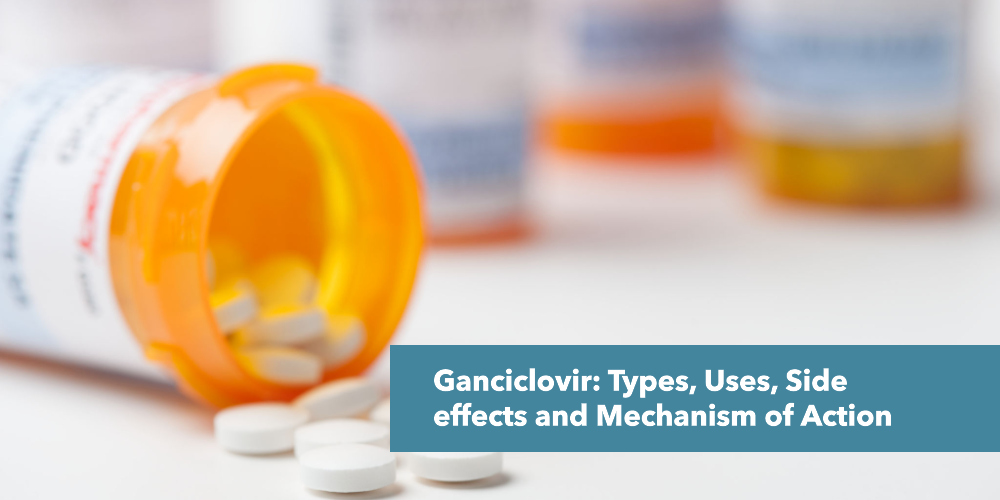What is Ciclosporin?
Ciclosporin (cyclosporine) is an immunosuppressant medication you take to prevent organ rejection after a transplant (e.g., kidney, liver) or treat autoimmune conditions like rheumatoid arthritis, psoriasis, or severe eczema. It works by blocking T-cell activation, reducing your immune system’s response.
How Does Ciclosporin Work?
Ciclosporin works by suppressing your immune system. It binds to a protein called cyclophilin, forming a complex that inhibits calcineurin, an enzyme necessary for activating T-cells. Without active T-cells, the production of interleukin-2 and other cytokines decreases, reducing your body’s immune response. This mechanism helps prevent organ rejection in transplant patients and controls symptoms in autoimmune diseases.
What are the Uses of the Ciclosporin?
Ciclosporin is an immunosuppressant medication primarily used to prevent organ rejection after a transplant. It works by reducing the activity of your immune system, preventing it from attacking the transplanted organ. Doctors prescribe it for kidney, liver, and heart transplants, among others.
In autoimmune diseases, ciclosporin is used to manage conditions where your immune system mistakenly attacks your body. It is effective in treating severe psoriasis, rheumatoid arthritis, and atopic dermatitis. For psoriasis, ciclosporin helps control skin inflammation, while in rheumatoid arthritis, it reduces joint damage and pain.
In ophthalmology, ciclosporin eye drops are used to treat dry eye syndrome, particularly in cases caused by inflammation, such as keratoconjunctivitis sicca. It improves tear production and reduces eye irritation.
What are the Side Effects of the Ciclosporin?
Ciclosporin can cause side effects, especially if you take it for a long time or at high doses. The most common side effects include kidney damage, high blood pressure, and increased risk of infections due to its immunosuppressive effects. Regular blood tests are necessary to monitor kidney function and drug levels.
Common Side Effects
- Kidney Toxicity
- High Blood Pressure
- Infections
- Gum Overgrowth
- Increased Hair Growth (Hirsutism)
Less Common but Serious Side Effects
- Liver Damage
- Neurological Effects
- Electrolyte Imbalances
- Gastrointestinal Issues
Who Shouldn’t Use Ciclosporin?
You should not use ciclosporin if you have certain medical conditions or risk factors that could lead to serious complications. This medication suppresses your immune system, so it requires careful monitoring.
People with Uncontrolled High Blood Pressure
Patients with Severe Kidney Disease
Individuals with Active Infections
People with Liver Disease
Patients with a History of Cancer
Pregnant or Breastfeeding Women
People with Severe Uncontrolled Inflammatory Conditions
Individuals Taking Certain Medications
Does Ciclosporin Interacts with Foods and Drinks?
Ciclosporin can interact with specific foods and drinks, affecting how well the medication works in your body. Here are the key interactions:
Grapefruit and Grapefruit Juice: These contain compounds that inhibit CYP3A4 enzymes. This interaction can increase ciclosporin levels by up to 200%, heightening the risk of side effects like kidney damage and high blood pressure.
High-Potassium Foods: Since ciclosporin may raise potassium levels, consuming too many potassium-rich foods (such as bananas, oranges, and leafy greens) can lead to hyperkalemia. Elevated potassium may cause irregular heart rhythms and muscle weakness.
Alcohol: Drinking alcohol can stress your liver, potentially reducing ciclosporin metabolism. This may lead to increased side effects like high blood pressure and liver toxicity.
Dairy Products: Some studies suggest that taking dairy products with ciclosporin can lower its absorption. It is advisable to take your medication at least one hour before or two hours after dairy consumption.
Caffeine: Because ciclosporin can increase blood pressure, high intake of caffeine (from coffee, tea, energy drinks, or chocolate) may worsen this effect.
What are the Ciclosporin Tablets Available in Pakistan?
In Pakistan, several brands of Ciclosporin tablets (capsules) are available, primarily used as immunosuppressants. Here are some notable options:
Cipol-N (50 mg): This brand contains cyclosporin and is used for its immunosuppressive effects, particularly in organ transplant cases. It is available in packs of 50 capsules1.
Sandimmun Neoral (100 mg): Another widely recognized brand, Sandimmun Neoral 100mg is utilized to prevent organ rejection post-transplant. It is also available in packs of 50 capsules26.
Bioral (25 mg and 50 mg): Bioral capsules are available in both 25 mg and 50 mg dosages, catering to different patient needs53.
Imun Heoral (50 capsules): Manufactured by Crystolite, this brand provides cyclosporin in a soft gelatin capsule form, ensuring quality assurance




